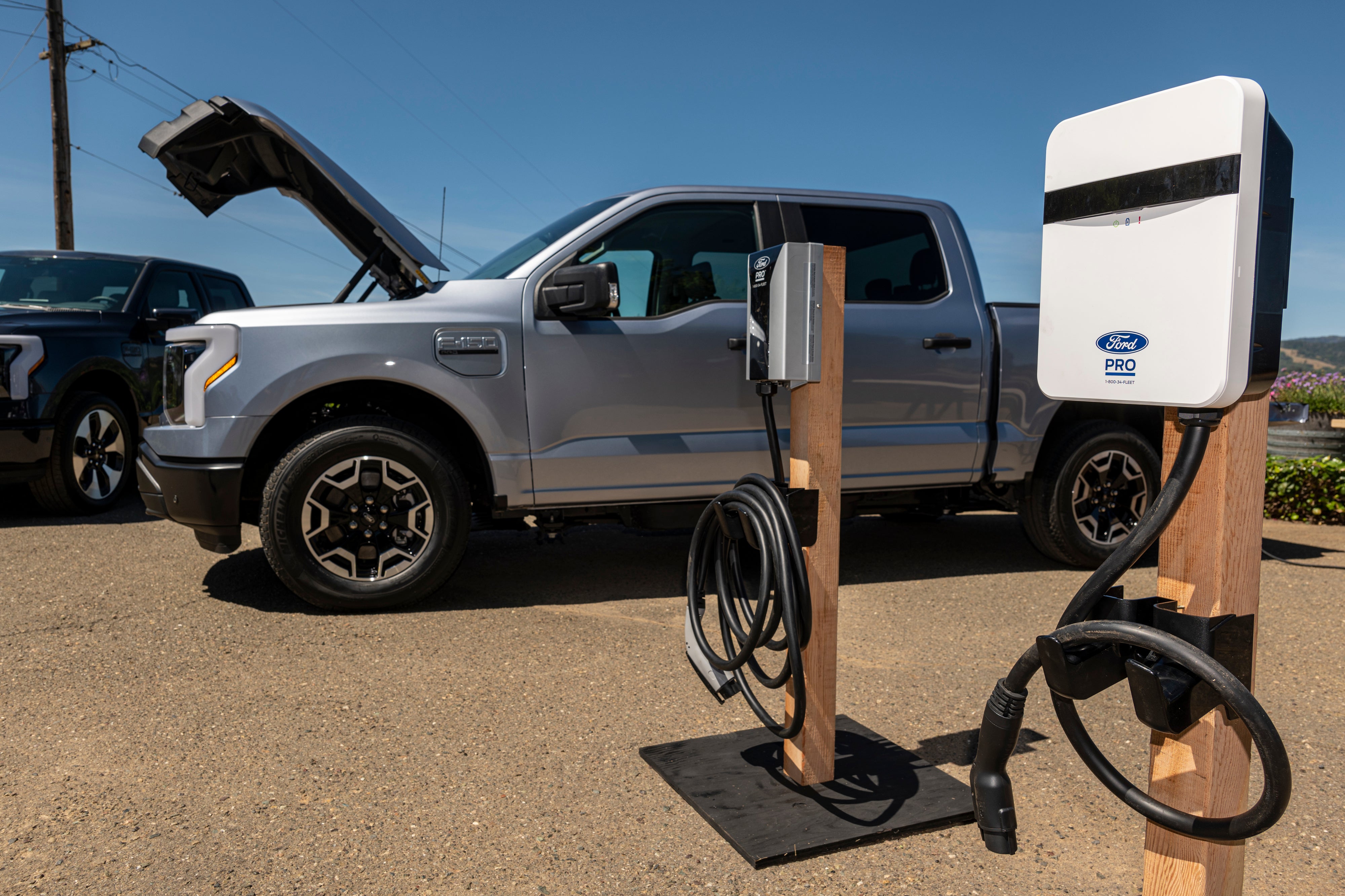
The U.S. Forest Service is used to exploring new frontiers. The latest one? Electric trucks.
The federal agency is undertaking a 12-month pilot program to test whether battery-powered pickups are up to the task of traversing some of the country’s most rugged and remote terrains for field operations.
With the Biden administration pushing for all new government vehicles to be electric by 2035, the first-of-its-kind program is an early opportunity for the Forest Service to see how the Ford F-150 Lightning performs in a variety of conditions — and assess how its range, towing and other features compare to those of the gas-powered trucks currently in use.
“As one of the premier land management agencies, we’re about conservation, we’re about enhancing the environment, and so this is the right thing to do, to start to move away from the vehicle emissions that we currently are producing,” said Gina Owens, regional forester for the agency’s eastern region. “We’ve got a ways to go, and we need to be doing our part, so this test is an important first step.”
Forest Service officials announced the pilot program Friday near Ford’s manufacturing facility in Dearborn, Mich., flanked by a horse, a Ford Model T and a shiny new F-150 Lightning, representing the evolution of the agency’s transportation options since its founding in 1903.
“We’re ushering in a whole new fleet of workhorse in the 21st century,” said James Simino, forest supervisor for the nearby Huron-Manistee National Forests.
Huron-Manistee in Michigan, Allegheny National Forest in Pennsylvania and White Mountain National Forest in New Hampshire are each testing one F-150 Lightning, which Kelley Blue Book has called the “best electric truck” on the market. The Forest Service was able to purchase the vehicles after the General Services Administration made them available to agencies last year.
The trucks are equipped with four-wheel drive, up to 7,700 pounds of towing capacity and 230 miles of range on a full charge. They can be recharged overnight with the supplied Level 2 charger, which doesn’t require special infrastructure.
While much of the existing research on electric vehicles has focused on cost, environmental benefits and consumer perceptions, the Forest Service’s study will test performance and reliability. The yearlong assessment will give officials time to evaluate the vehicles in a range of weather and terrain conditions and to see how employees feel about using them for everyday tasks.
“We know that the introduction of electric vehicles has tremendous [potential] to curb emissions, but what we don’t know very much about is how electric vehicles can work as land management tools,” Sonya Sachdeva, a Forest Service research scientist, said at the announcement. “We want to ensure that these vehicles are promoting safety, efficiency and functionality.”
Data collected will be used to understand the benefits and limitations of the electric trucks and to plan for future charging stations.
Owens said she anticipates concerns about the range and reliability of electric trucks from some employees who aren’t yet familiar with them. When the Forest Service switched from horses to Model Ts in the early 20th century, skeptics said the cars likely would run out of gas in the field. But in practice, she said, that shift “certainly has worked out well.”
“Change can be hard and uncomfortable. However, this is not the first time we’ve made a transition in the way that we transport ourselves across our national forests,” Owens said. “We know we will encounter issues along this journey and will continually analyze them and figure out the best path forward because that’s what we do in the Forest Service.”
Reprinted from E&E News with permission from POLITICO, LLC. Copyright 2022. E&E News provides essential news for energy and environment professionals.
